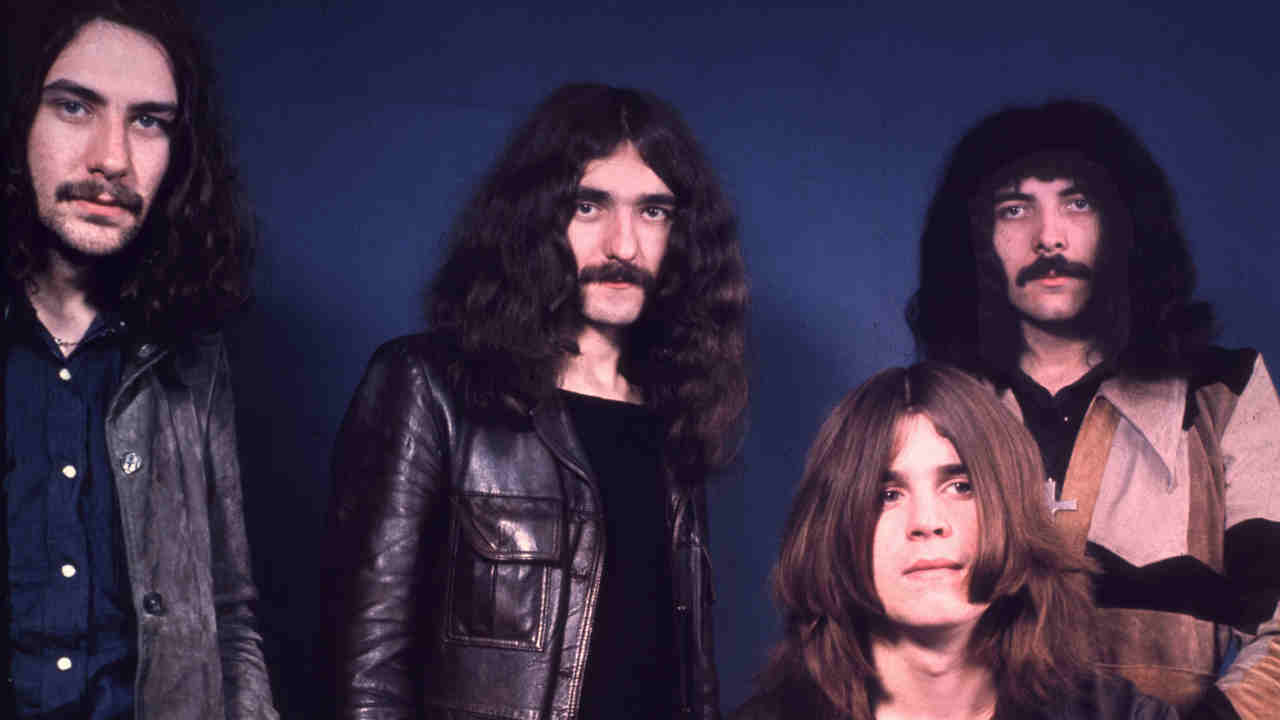This July, Ozzy Osbourne is set to reunite with his Black Sabbath bandmates Tony Iommi, Geezer Butler and Bill Ward one last time for an all-star farewell performance at Villa Park in Birmingham. But it’s far from the first time Sabbath have reunited over the course of their 55 year-plus career. In 2012, three quarters of the band’s original line-up were back together, with a series of shows and a Rick Rubin-produced comeback album in the pipeline. Hammer talked to Ozzy and Geezer about the band’s return and their staggering legacy.

The debate about who or what instigated the birth of heavy metal will almost certainly continue until we are all reduced to ash or worm food, but for those of us who cherish this music and embrace the culture and lifestyle that goes along with it, there is only one band who can truly lay claim to being the authentic forefathers of everything we hold dear.
The musical elements that combined to form that life-affirming clangour that has resounded around the globe for more than 40 years now can be fairly traced back to earlier points in time, whether they be the primitive blues of the Mississippi Delta, the raucous simplicity of late 50s rock’n’roll groups or even the psychedelic fumblings of early fuzz-merchants like Blue Cheer and Jimi Hendrix.
But the truth is that the essence of heavy metal found its first bona fide expression in that ageless opening riff to Black Sabbath’s eponymous theme song: the opening track on their self-titled debut which was unleashed onto an unsuspecting world on February 13, 1970. That creepy, doom-laden shift from G to D flat – the key ingredients of the notorious Devil’s Interval, music theory fans! – injected an unprecedented level of malevolence, eeriness and foreboding into rock music; the sound of the Birmingham quartet’s blues roots being filtered through a hazy, disorientating occult prism.
“We were influenced by The Beatles, and in Tony’s case, The Shadows,” bassist Geezer Butler explains to Hammer. “They inspired us to want to play music. The roots of our music came from blues and psychedelic bands and singers. When we first formed a band together we were playing mostly blues stuff, like Skip James, Robert Johnson, Willie Dixon and John Lee Hooker. In fact, Warning by The Aynsley Dunbar Retaliation made it onto our first album. We used to jam off that song into our original stuff. We built up a following playing in blues clubs and bars around Birmingham and wherever anyone would have us, but we gradually introduced our own songs into the set, and to great success!”
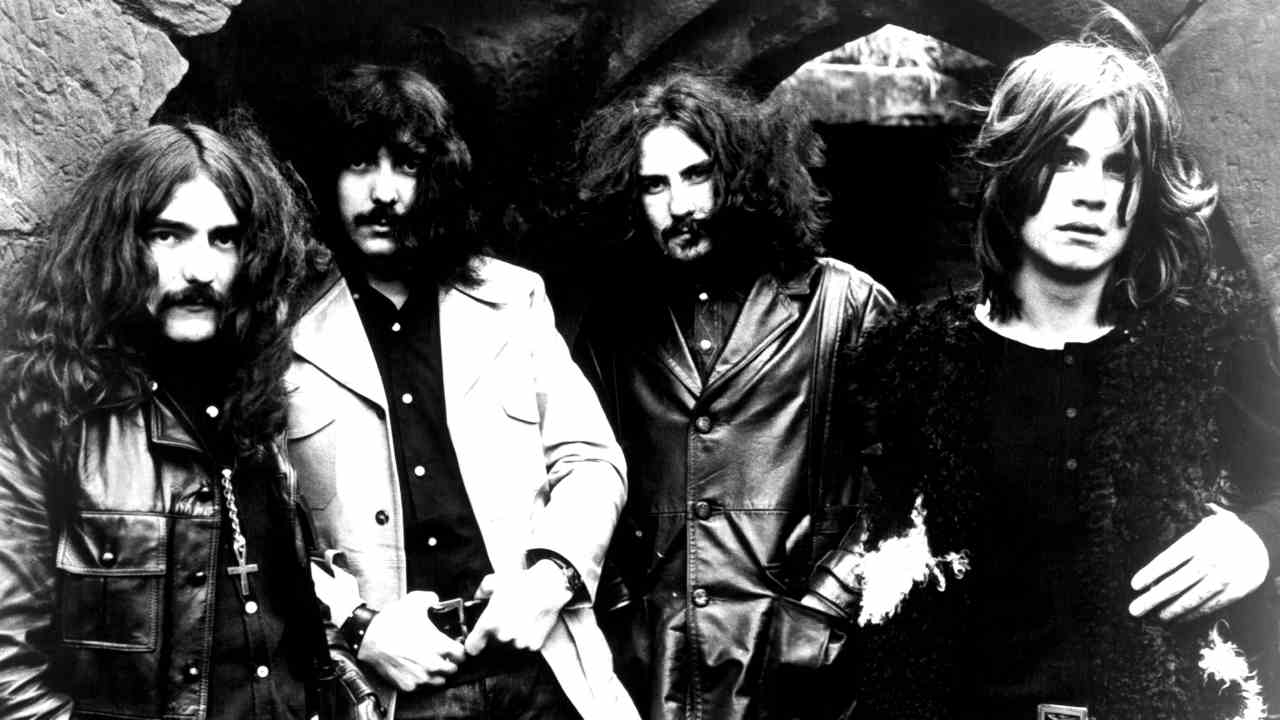
Rock’n’roll would never sound the same again after Black Sabbath and it scarcely needs emphasising that without that song, this band or the phenomenal body of work that they produced during the 70s – not to mention the many other great works that bore the Black Sabbath imprint in later years – this magazine and the vast majority of music that we celebrate within its pages would simply not exist. It took a while for the band’s unique approach to making music to catch on, however, and the initial critical response to that now classic debut was generally pretty scathing.
“We didn’t give a damn about that,” states Ozzy Osbourne. “I was just happy about getting a record out there. Looking back, it’s a great record. And with the success came all the trappings and we tried every one of them. The drugs, the travel, the women. Our lives were forever changed!”
It would be easy to be cynical about the current proliferation of reuniting rock veterans or the validity of wheeling out old songs to new generations of music fans who have grown up with the pick’n’mix culture that often seems to regard music as a disposable art form, but the return of the original lineup of Black Sabbath deserves to transcend such notions of cashing-in and pandering to idle nostalgia.
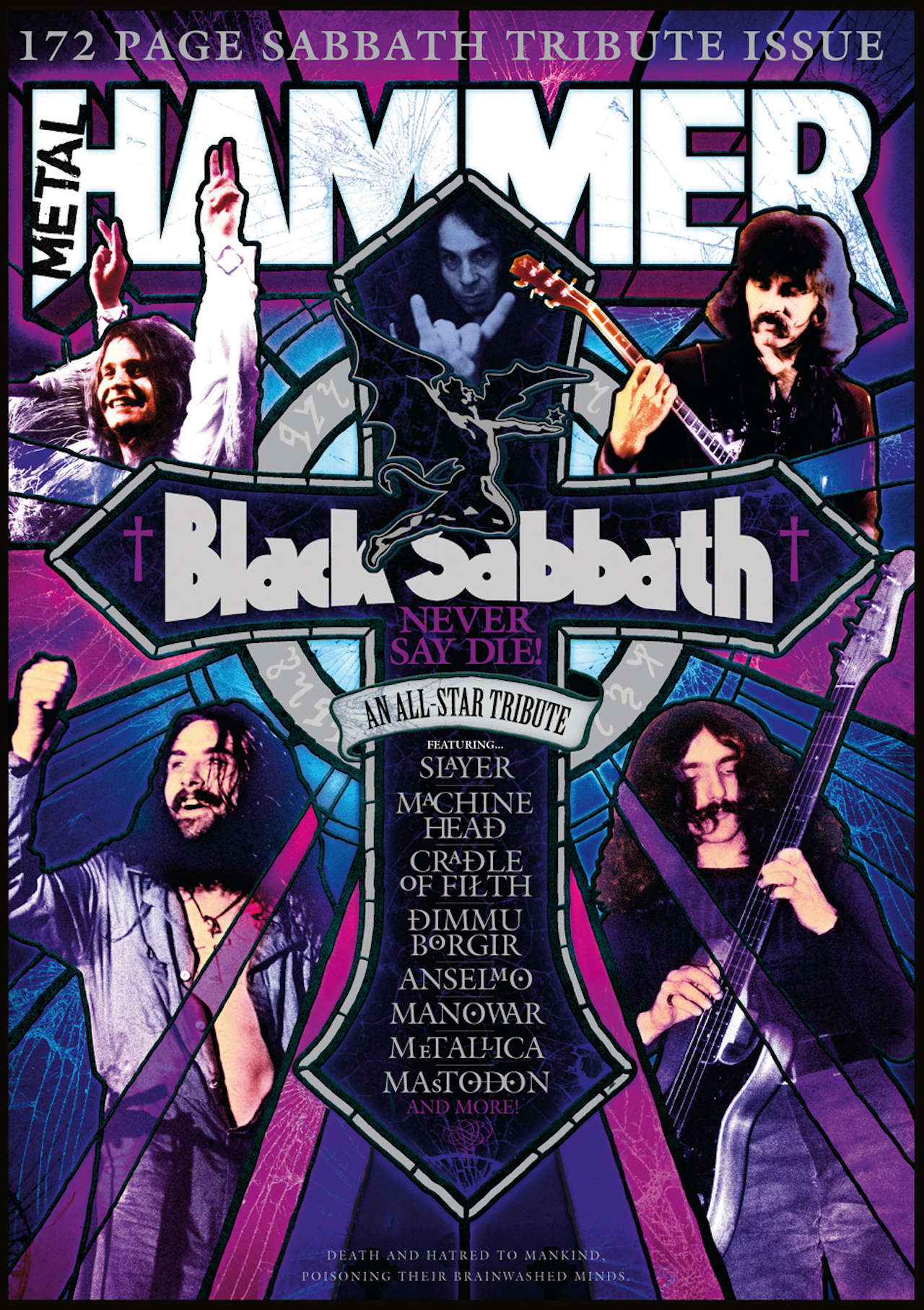
Black Sabbath matter because heavy metal matters. Listen to those riffs, those melodies, those lyrics and those compelling grooves and you will hear the sound of our precious world turning: heavy, heartfelt, inspirational, unstoppable and as relevant to the music we love as they ever were.
“We were never a media band, more of a word-of-mouth band,” Geezer tells Hammer. “So with the internet, iTunes and YouTube, we’d probably be more successful now, since we wouldn’t have to look to radio or MTV to try getting our music known. The biggest differences, apart from the ease of communication, is the way the songs are written. Everyone now has a means of recording, whether a simple tape recorder or a computer, whereas we had no means of recording. Reel-to-reel tape recorders, the only means of recording back then, were hideously expensive so every song we wrote had to be memorised! I wish we’d had a means of recording the jams we used to have back then. There’d probably have been some very interesting things going on! The business side of it has all changed too. People now know to consult lawyers and accountants before committing their lives to contracts and major record companies are more reluctant to give original music a fair chance, relying more on what is commercially safe.”
The excitement about a possible reunion of the original Sabbath lineup began in earnest back in August 2011 when a local Birmingham newspaper confirmed that the band had decided to regroup and were making plans to rehearse and record together again. Both Ozzy and Geezer had issued equivocal denials of any plans to reform in the preceding months and, given that Ozzy in particular was visibly immersed in his own solo career, few fans had any real expectations that a genuine reformation was in the offing.
However, when the internet became rife with speculation, Tony Iommi was quick to dispel the idea that anything definite had been agreed, stating on his website that the journalist responsible for the story had used an old quote and that no official reunion had taken place. This, of course, was far from an unequivocal denial and the fact that neither Tony nor his former colleagues came out and kicked the speculation into touch did seem to imply that there was something going on behind the scenes, even if it was at such an early stage that no one was willing to publicly commit.
Another reason that Sabbath fans may have started to get very excited about the possibility of their heroes’ return was that the band have hardly been shy about reforming in the past. The original lineup’s first era came to a rather abrupt end after the release of 1978’s Never Say Die album when Ozzy was unceremoniously booted out due to his reportedly erratic and famously drink and drug-fuelled behaviour. Drummer Bill Ward later stated that the band had become “toxic” and that Ozzy’s inability to turn up for rehearsals eventually drove the rest of the band to conclude that it was time to try something new.
This they did, of course, by enlisting Ronnie James Dio to become the band’s new singer and with that rather smart move the Black Sabbath name was enabled to live and fight another day, albeit in a different form and with a noticeably different musical atmosphere. Ronnie’s contribution to the Sabbath legacy is undeniably important. In fact, it’s hard to imagine that the band would have survived without him or the resurgence they enjoyed as a result of 1980’s classic Heaven And Hell album.
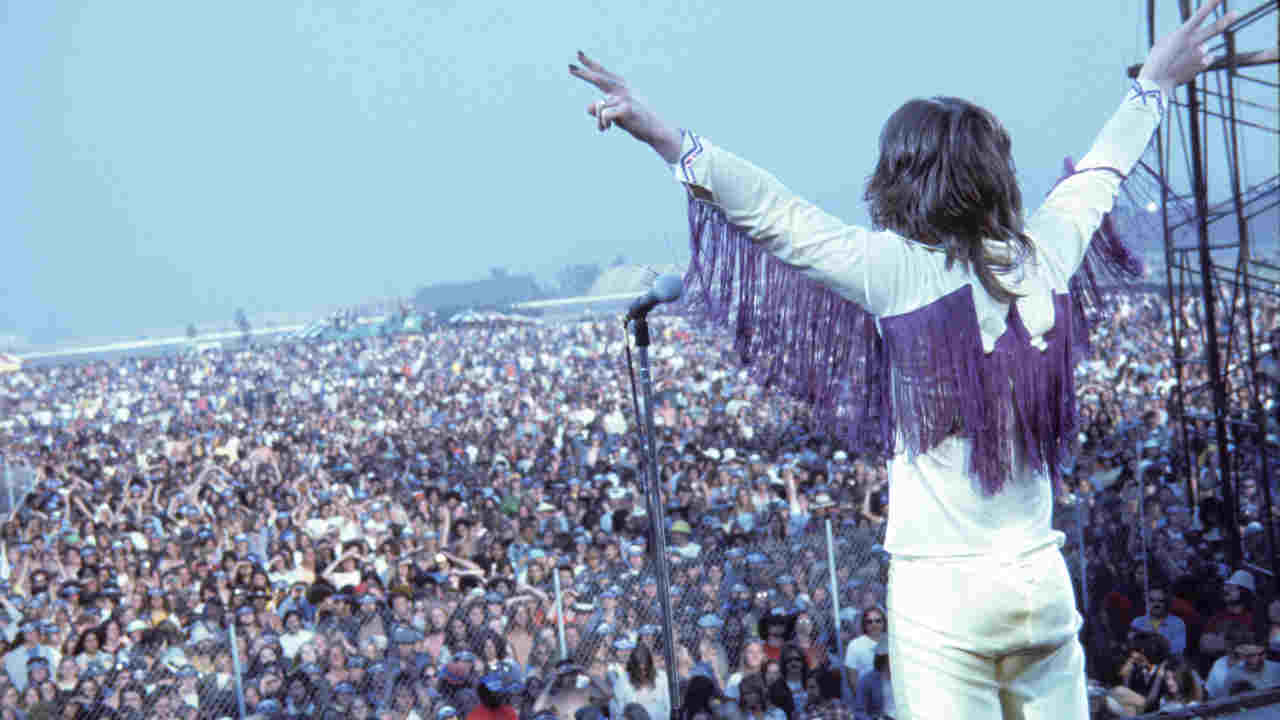
Nonetheless, the sacrosanct status of the original Sabbath lineup remained unassailable and so despite the popularity of the Dio era, fans were ecstatic when Ozzy, Geezer, Tony and Bill reconvened for their first public reunion in 1992, performing at the end of one of Ozzy’s supposedly final solo shows in California. Somewhat ironically, the event led to an acrimonious split between Sabbath and Dio – who had released the crushing Dehumanizer album earlier that year – but also seems to have sown the seeds for the full-blown reunion that took place in 1997, when Black Sabbath were charged with the task of headlining that year’s Ozzfest tour in the US. Initially, the band were aided by Faith No More’s Mike Bordin, who stood in on drums due Bill Ward’s outstanding commitments with his own solo band.
However, the full Sabbath lineup eventually hit the stage together, fittingly enough at Birmingham’s NEC arena, for two shows in December that were recorded and released as the aptly titled Reunion album in 1998; a release that also featured two brand new but slightly underwhelming studio tracks, Psycho Man and Selling My Soul. This flurry of activity seemed to spark something within the Sabbath boys and the years that followed saw them reunite multiple times, headlining festivals on both sides of the Atlantic and even venturing into the studio with producer Rick Rubin to attempt to record a new album.
Sadly, those sessions fizzled out and as the new millennium dawned, events undoubtedly conspired to keep the band apart, not least due to Ozzy’s sudden reinvention as a reality TV celebrity via MTV’s The Osbournes.
Fast forward back to 2011 again and events were conspiring once again, but in a positive direction this time. The death of Ronnie James Dio in 2010 had put a firm full stop at the end of his Heaven And Hell project with Tony Iommi, Geezer Butler and drummer Vinny Appice that delighted so many and proved to be an extraordinary creative epitaph for the great man.
But when one door shuts, another one opens. On November 11, 2011, at a private press conference at Los Angeles’ famed Whisky A Go Go club, the four members of the original Black Sabbath lineup announced that they would be reuniting for both live performances and a brand new studio album; their first in 34 years. Anyone who had heard Heaven And Hell’s remarkable The Devil You Know or Ozzy’s widely lauded Scream album was more than aware that the band were individually firing on all creative cylinders and so, the sneering of a few online trolls aside, the news that new material and a live rebirth were on the cards was greeted with a universal shudder of excitement. In the UK, of course, fans nearly exploded with joy when it was revealed that Black Sabbath would be headlining this year’s Download festival at Castle Donington. Oh lord, yeah!
Nothing is ever simple in Sabbath World, though. 2012 began with two major setbacks for the band’s planned reunion. Firstly, in January it was revealed that Tony had been diagnosed with the early stages of lymphoma; an announcement that elicited an outpouring of support and heartfelt tributes from throughout the rock and metal world, as everyone send their best wishes to this living icon.
As a consequence of Tony’s battle with illness, it had also been decided that Black Sabbath’s planned world tour would be cancelled and, with the exception of Download, the dates would be fulfilled by Ozzy and a host of guest stars, performing under the banner of Ozzy And Friends. To help Tony remain near his much-needed medical facilities, Sabbath’s recording sessions were moved from California to London.
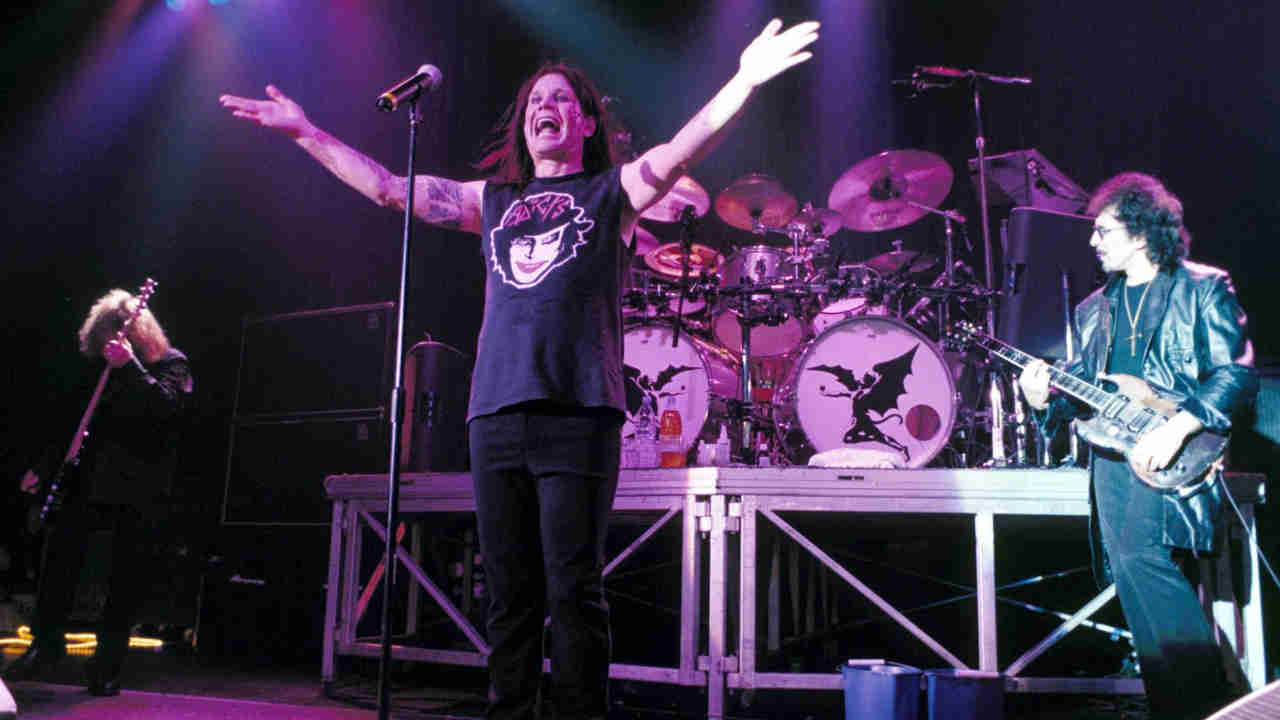
Secondly, in January Bill Ward made a statement online claiming that he would be unable to participate in the forthcoming live shows due to dissatisfaction with the contract he had been asked to sign. Amid wild and generally unfounded speculation about what exactly was going on behind the scenes, the remaining band members swiftly responded by saying that they had no choice but to continue recording their new album without him but that the door was “always open” if Bill ever changed his mind. Fans around the world duly crossed their fingers and hoped that all these obstacles could be overcome and better news would soon be forthcoming.
In March, Tony issued a statement on his official website, indicating that his ongoing treatment was going well and that he expected to be ready and able to tread the boards with his Black Sabbath brothers this summer. He also said that sessions for the new album were going well and that the band had written some “great new tracks”.
Further glad tidings came in early May when Jane’s Addiction frontman Perry Farrell announced that Black Sabbath would be headlining this year’s Lollapalooza festival in Chicago in August, thus confirming Sharon Osbourne’s previous statement that the band would now perform just one festival show in the UK and one in the US. Throw in the glorious news about Sabbath’s homecoming warm-up show at Birmingham’s O2 Academy on May 19 – tickets for which sold out in less than 10 minutes – and it seems that despite all the turmoil, the Black Sabbath reunion is gathering pace.
Meanwhile, speculation continues about who might replace Bill Ward should his contractual problems not be resolved. Many names have been thrown around, most notably Mike Bordin, Ozzy’s current drummer Tommy Clufetos and, inevitably, Vinny Appice who had been a member of Black Sabbath in the early 80s, performing on the classic Mob Rules album, and of Heaven And Hell in more recent years.
However, Vinny has since ruled himself out, stating that he is focusing on his current band, Kill Devil Hills, which also features ex-Pantera/Down bassist Rex Brown in its ranks. Curiously, Bill Ward’s name has since reappeared as part of the official lineup on Black Sabbath’s Facebook page, so although no definitive statement has been made about whether or not he will be taking part in the reunion shows, the signs seem to be pointing towards a positive outcome.
If anyone remains in any doubt about how fundamental to heavy music – and, indeed, a vast amount of music beyond it – Sabbath are or why the return of the original lineup is such a big deal, they need only read on and witness the vast number of tributes and statements of admiration and adoration from major figures in our world. In musical terms alone, the sustained impact of Black Sabbath and their music is second to none. The band themselves are immensely proud of their huge catalogue of eternal anthems and they are relishing a fresh opportunity to play them all again.
“Lyrically I’d say I’m most proud of songs like War Pigs, A National Acrobat, Spiral Architect, Hole In The Sky and After Forever,” says Geezer. “It’s very hard for me to pick a favourite because it depends on my mood. They all deal with different subjects. But musically I’d probably go with Black Sabbath. It was our first totally original song and it summed up the personality and mood of the band and set the standard for our future writing.”
“For me, it has got to be Paranoid,” says Ozzy. “Through- out my solo career and with Sabbath, I’ve always ended every show with that song. It feels as good to play it now as when we first wrote it.”
Everything worth a damn that has happened in hard rock and heavy metal since the band first emerged in the late 60s bears traces of the Sabbath sound within its DNA and that is even true of bands that have never listened to Master Of Reality or Paranoid. There have been many great masters of the art of the riff over the last 40 years, but no one has produced as many timeless classics as Tony Iommi and his comrades.
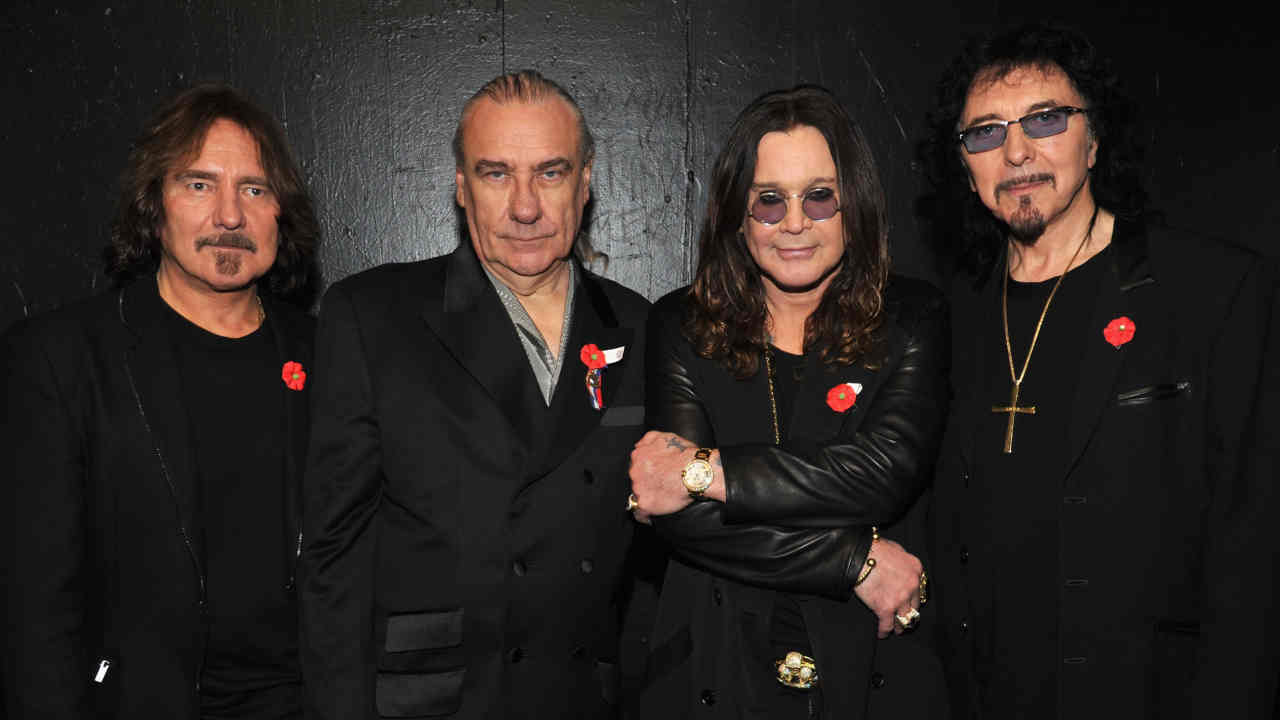
Sabbath’s influence can be heard everywhere: from the pioneering metallurgy of Judas Priest and Iron Maiden, the speed-fuelled thrash revolution of Metallica, Slayer and Megadeth and the defiant underground hardcore punk of Black Flag and Discharge through to the entire grunge movement of the early 90s – Nirvana, in particular, frequently cited Black Sabbath as a primary inspiration – the dark grooves and genre-bending mischief of nu-metal and, of course, every last stoner rock or doom band ever to fire up a bong and fling on a pair of flares. Black metal, death metal, thrash metal, grindcore, metalcore, djent… you name it, it can all be traced back via one route (or root) or another to the original source of all that is heavy.
Black Sabbath’s music continues to resonate with a freshness, energy and spirit that defies the passing of time. As each new generation of fans embraces heavy metal, the flame of Iommi, Butler, Osbourne and Ward continues to burn brightly; unerring, fiercely relevant, immortal. They belong to us and we to them. Black. Fucking. Sabbath. We need them more than ever.
“I didn’t know we were the forefathers of metal!” Ozzy tells Metal Hammer. “When I used to do Ozzfest I hadn’t realised we had such an impact on the young bands. I’m proud of that alone. I wasn’t aware for a long time, I thought everyone was just taking the piss, you know? But now I feel very comfortable with the guys and the songs we are writing. The reunion’s always been on a backburner. It’s always been there.”
Originally published in Metal Hammer issue 232, May 2012
